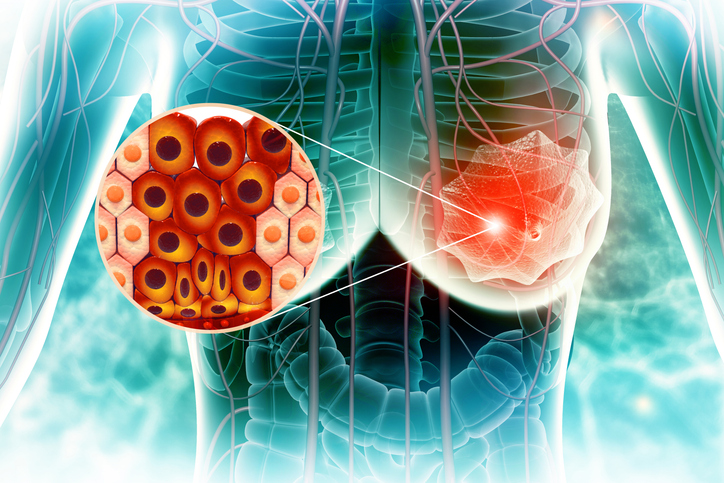
A year of treatment using the antibody-drug conjugate trastuzumab emtansine (T-DM1) is highly effective in preventing stage I HER2-positive breast cancer recurrence, according to a study conducted by researchers from the Dana-Farber Cancer Institute and published in the Journal of Clinical Oncology.
“Patients with stage I HER2-positive breast cancer have recurrence rates of 5% to 30%. Post-surgical treatment with chemotherapy and the antibody trastuzumab, which binds to HER2, can significantly reduce the risk of recurrence in these patients. But the side effects can have a detrimental impact on patients’ quality of life (QOL),” said the study’s lead author, Paolo Tarantino, MD, of Dana-Farber and the University of Milan, via a press release. “In this study, we evaluated T-DM1, which links trastuzumab to a powerful chemotherapy agent, for effectiveness and toxicity in this group of patients.”
The ATTEMPT trial comprised 512 patients from cancer centers across the United States. In the population of interest, 384 of the participants were treated with T-DM1 and 128 were treated with chemotherapy and trastuzumab. According to the results, 5 years following treatment, 97% of patients receiving T-DM1 had no evidence of cancer recurrence. Moreover, patient-reported outcomes showed better QOL with T-DM1, less neuropathy, less hair loss, and better work productivity compared with chemotherapy and trastuzumab.
Senior author Sara Tolaney, MD, MPH, chief, Division of Breast Oncology, Dana-Farber Cancer Institute, said of the findings: “The ATEMPT trial has taught us that 1 year of T-DM1 after surgery for patients with a stage I HER2-positive cancer leads to outstanding long-term outcomes, making it a reasonable treatment approach for select patients.”







 © 2025 Mashup Media, LLC, a Formedics Property. All Rights Reserved.
© 2025 Mashup Media, LLC, a Formedics Property. All Rights Reserved.